- Details
-
Category: Mining and Human Rights
-
Published: Tuesday, 11 May 2021 08:52
CNCA
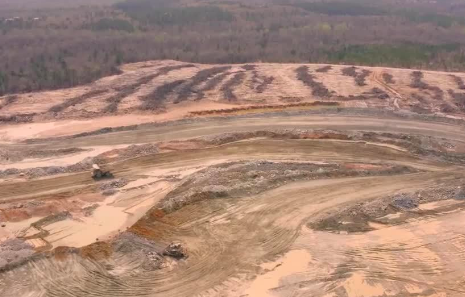
On March 2, 2021, the Federal Court of Canada will hear arguments in a lawsuit that seeks information about the Canadian government’s response to a human rights case concerning a Canadian-owned mine in Guatemala. The suit was brought by York University law professor and co-founder of the Justice & Corporate Accountability Project (JCAP), Shin Imai, who first sought the information through access-to-information requests in 2014.
Read more ...
- Details
-
Category: Mining and Human Rights
-
Published: Tuesday, 11 May 2021 08:21
GuapinolResiste
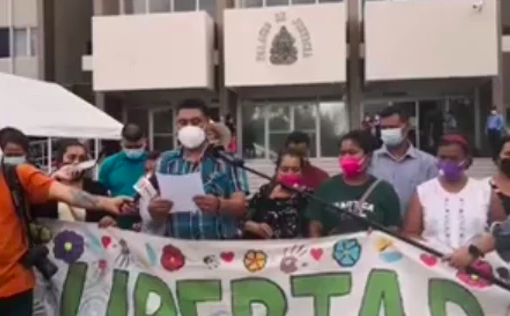
After finding that the detention of the eight Guapinol defenders imprisoned for more than 17and 26 months is arbitrary, the UN Working Group on Arbitrary Detention urges the Government of Honduras to "release the eight defenders immediately" and to grant them the effective right to compensation and reparation. The Group further called on the government to "conduct a thorough and independent investigation" into this arbitrariness and to take action against those responsible for it. In addition, the Group asked the State of Honduras to disseminate this opinion "by all available means and as widely as possible".
Read more ...
- Details
-
Category: Regional News
-
Published: Sunday, 09 May 2021 15:56
The Conversation
Giada Ferrucci
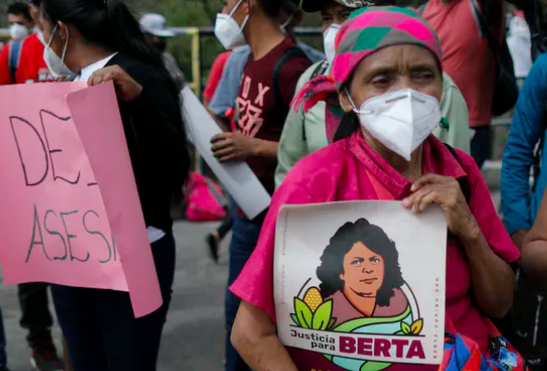 Two men shot Arnold Joaquín Morazán Erazo to death in his home in Tocoa, Honduras, one night in October 2020. Morazán was an environmental activist and one of 32 people criminalized by the Honduran government for defending the Guapinol River against the environmental impacts of a new iron oxide mine in the Carlos Escaleras National Park.
Two men shot Arnold Joaquín Morazán Erazo to death in his home in Tocoa, Honduras, one night in October 2020. Morazán was an environmental activist and one of 32 people criminalized by the Honduran government for defending the Guapinol River against the environmental impacts of a new iron oxide mine in the Carlos Escaleras National Park.
So far, at least eight people who have opposed the mine have been killed, putting its owner, Inversiones Los Pinares, at the centre of a deadly environmental conflict in the mineral-rich Bajo Aguán region. Local communities are concerned about the mine’s potential ecological damage. In their attempts to defend their territories, local leaders have been surveilled, threatened, injured and imprisoned, and some, like Morazán, have been killed.
Read more ...
- Details
-
Category: Mining and Human Rights
-
Published: Friday, 07 May 2021 14:03
JACOBIN
Yves Engler
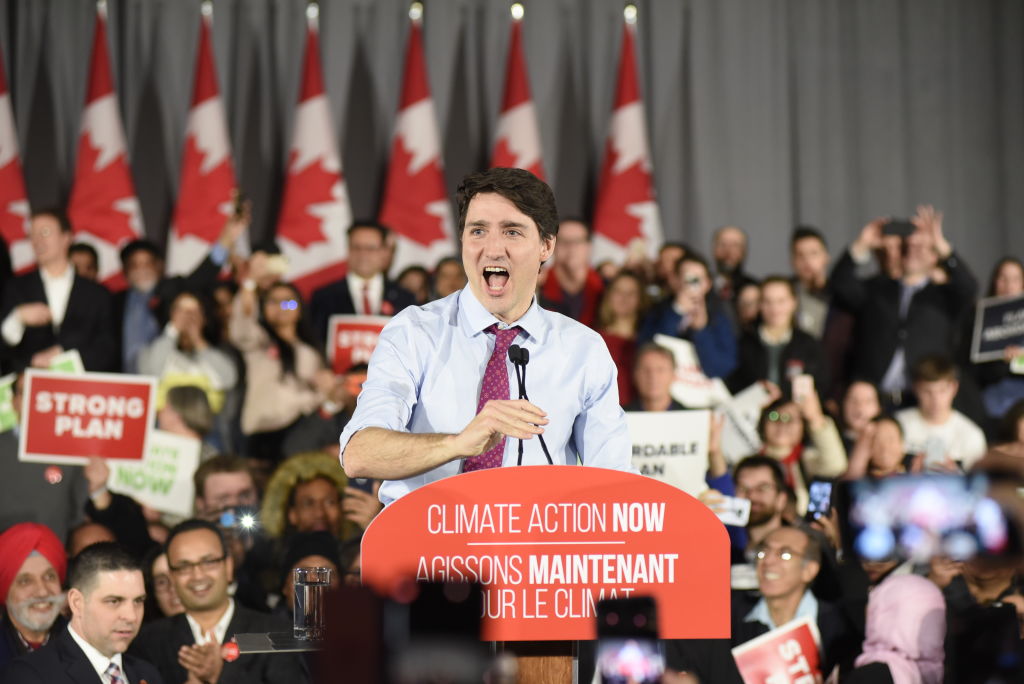 Three-quarters of the world’s mining companies are headquartered in Canada. Canadian mining firms are mired in corruption and human rights abuses around the world, yet Justin Trudeau has reneged on pledges to regulate them and end the abuses
Three-quarters of the world’s mining companies are headquartered in Canada. Canadian mining firms are mired in corruption and human rights abuses around the world, yet Justin Trudeau has reneged on pledges to regulate them and end the abuses
Canada is home to 75 percent of the world’s mining companies. Firms based or listed in Canada operate approximately four thousand mineral projects abroad. And, as you might expect, many of those projects involve shady corporate practices and violations of human rights.
Read more ...
- Details
-
Category: OceanaGold Philippines
-
Published: Wednesday, 05 May 2021 17:26
Yahoo Finance
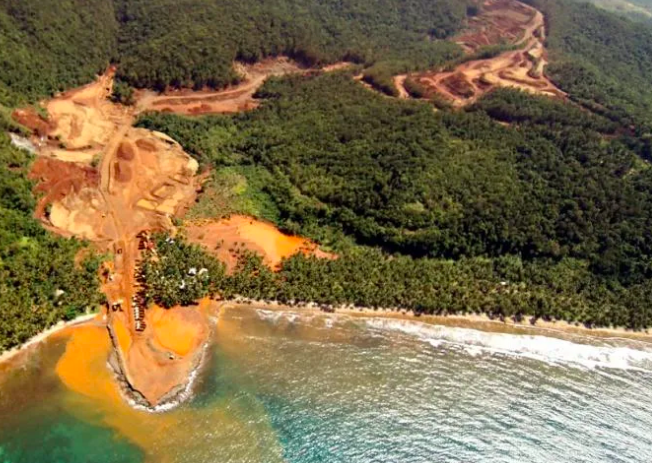 Philippine President Rodrigo Duterte officially lifted a nine-year ban on new mining projects Thursday, in a controversial move aimed at boosting state revenue and spurring investment in the country's coronavirus-devastated economy. The mining industry has stagnated since 2012 when Duterte's predecessor, Benigno Aquino, imposed a moratorium on new projects following public backlash over a series of devastating mining accidents. The executive order released Thursday was welcomed by the mining sector -- but green groups branded the decision "outrageous" and warned it could lead to more environmental disasters.
Philippine President Rodrigo Duterte officially lifted a nine-year ban on new mining projects Thursday, in a controversial move aimed at boosting state revenue and spurring investment in the country's coronavirus-devastated economy. The mining industry has stagnated since 2012 when Duterte's predecessor, Benigno Aquino, imposed a moratorium on new projects following public backlash over a series of devastating mining accidents. The executive order released Thursday was welcomed by the mining sector -- but green groups branded the decision "outrageous" and warned it could lead to more environmental disasters.
Duterte -- who had previously threatened to shut down the mining sector completely -- is facing growing criticism over his handling of the pandemic that has crippled the economy and thrown millions out of work.
Read more ...
- Details
-
Category: OceanaGold Philippines
-
Published: Wednesday, 05 May 2021 16:01
Manila Bulletin
Madelaine B. Miraflor
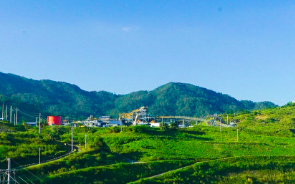 Australian-Canadian miner OceanaGold Corporation (OceanaGold) and the Philippine government are now finalizing the terms of their updated Financial and Technical Assistance Agreement (FTAA) for the resumption of the operations of the Didipio gold and copper mine in Nueva Vizcaya.
Australian-Canadian miner OceanaGold Corporation (OceanaGold) and the Philippine government are now finalizing the terms of their updated Financial and Technical Assistance Agreement (FTAA) for the resumption of the operations of the Didipio gold and copper mine in Nueva Vizcaya.
In a regulatory filing with the Toronto Stock Exchange and Australian Securities Exchange, OceanaGold disclosed that it had multiple meetings with Philippine government officials in December to finalize the terms of the FTAA renewal.
It also said the renewal is expected to be endorsed to the Office of the President for approval.
Read more ...
 On March 2, 2021, the Federal Court of Canada will hear arguments in a lawsuit that seeks information about the Canadian government’s response to a human rights case concerning a Canadian-owned mine in Guatemala. The suit was brought by York University law professor and co-founder of the Justice & Corporate Accountability Project (JCAP), Shin Imai, who first sought the information through access-to-information requests in 2014.
On March 2, 2021, the Federal Court of Canada will hear arguments in a lawsuit that seeks information about the Canadian government’s response to a human rights case concerning a Canadian-owned mine in Guatemala. The suit was brought by York University law professor and co-founder of the Justice & Corporate Accountability Project (JCAP), Shin Imai, who first sought the information through access-to-information requests in 2014.

 Two men shot Arnold Joaquín Morazán Erazo to death in his home in Tocoa, Honduras, one night in October 2020. Morazán was an environmental activist and one of 32 people criminalized by the Honduran government for defending the Guapinol River against the environmental impacts of a new iron oxide mine in the Carlos Escaleras National Park.
Two men shot Arnold Joaquín Morazán Erazo to death in his home in Tocoa, Honduras, one night in October 2020. Morazán was an environmental activist and one of 32 people criminalized by the Honduran government for defending the Guapinol River against the environmental impacts of a new iron oxide mine in the Carlos Escaleras National Park. Three-quarters of the world’s mining companies are headquartered in Canada. Canadian mining firms are mired in corruption and human rights abuses around the world, yet Justin Trudeau has reneged on pledges to regulate them and end the abuses
Three-quarters of the world’s mining companies are headquartered in Canada. Canadian mining firms are mired in corruption and human rights abuses around the world, yet Justin Trudeau has reneged on pledges to regulate them and end the abuses Philippine President Rodrigo Duterte officially lifted a nine-year ban on new mining projects Thursday, in a controversial move aimed at boosting state revenue and spurring investment in the country's coronavirus-devastated economy. The mining industry has stagnated since 2012 when Duterte's predecessor, Benigno Aquino, imposed a moratorium on new projects following public backlash over a series of devastating mining accidents. The executive order released Thursday was welcomed by the mining sector -- but green groups branded the decision "outrageous" and warned it could lead to more environmental disasters.
Philippine President Rodrigo Duterte officially lifted a nine-year ban on new mining projects Thursday, in a controversial move aimed at boosting state revenue and spurring investment in the country's coronavirus-devastated economy. The mining industry has stagnated since 2012 when Duterte's predecessor, Benigno Aquino, imposed a moratorium on new projects following public backlash over a series of devastating mining accidents. The executive order released Thursday was welcomed by the mining sector -- but green groups branded the decision "outrageous" and warned it could lead to more environmental disasters. Australian-Canadian miner OceanaGold Corporation (OceanaGold) and the Philippine government are now finalizing the terms of their updated Financial and Technical Assistance Agreement (FTAA) for the resumption of the operations of the Didipio gold and copper mine in Nueva Vizcaya.
Australian-Canadian miner OceanaGold Corporation (OceanaGold) and the Philippine government are now finalizing the terms of their updated Financial and Technical Assistance Agreement (FTAA) for the resumption of the operations of the Didipio gold and copper mine in Nueva Vizcaya.